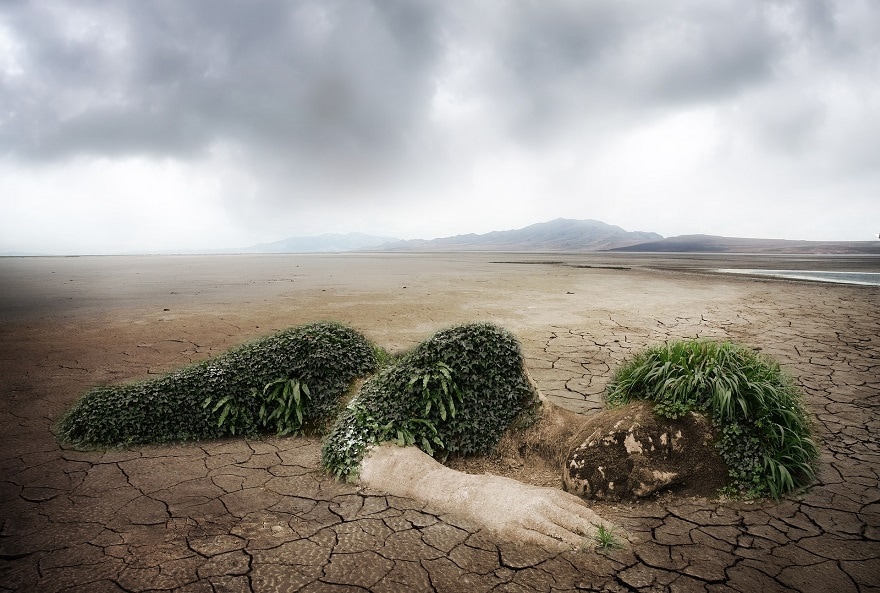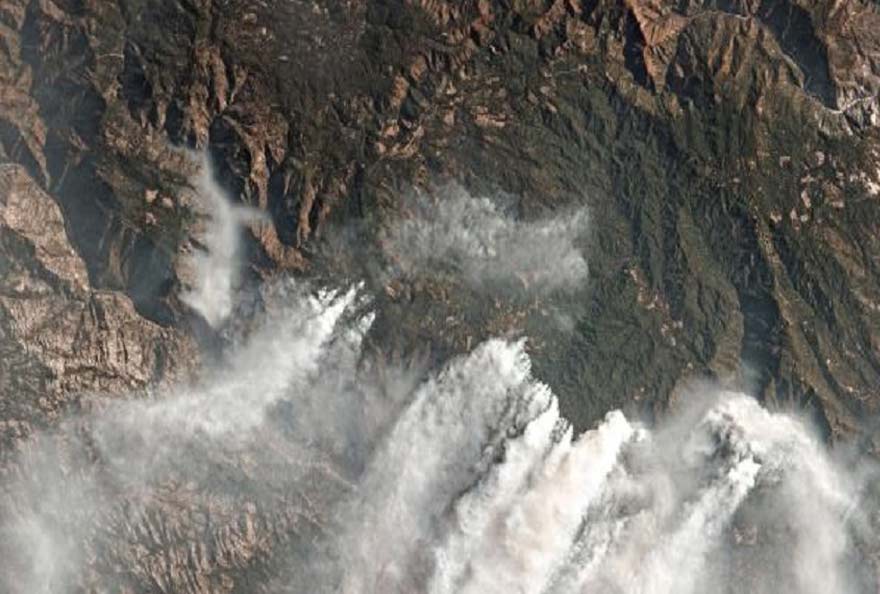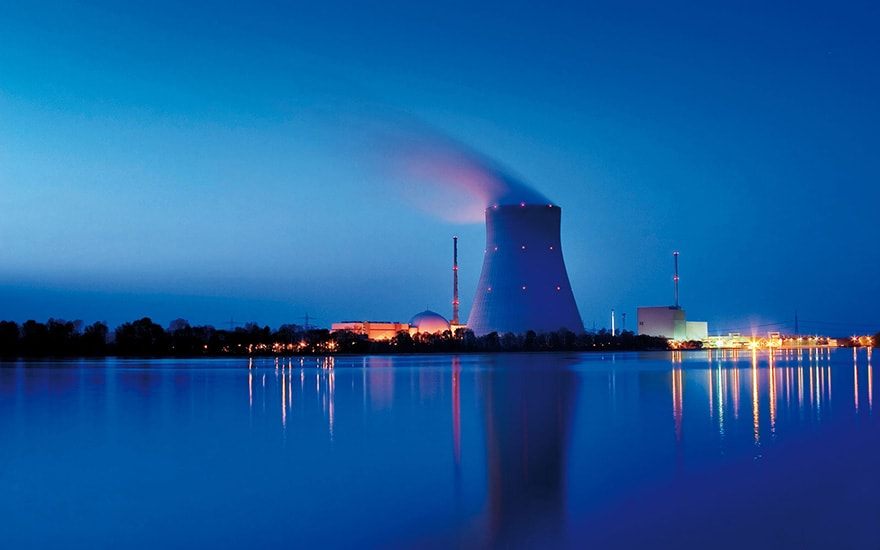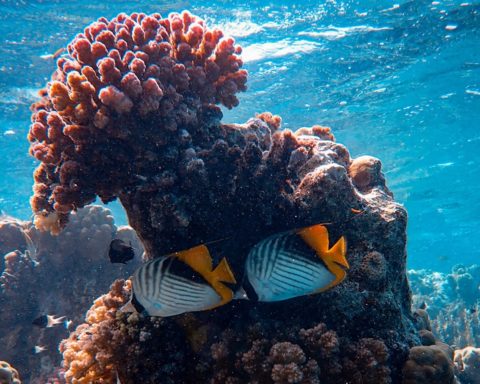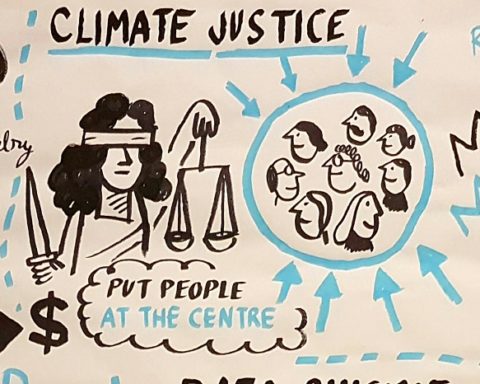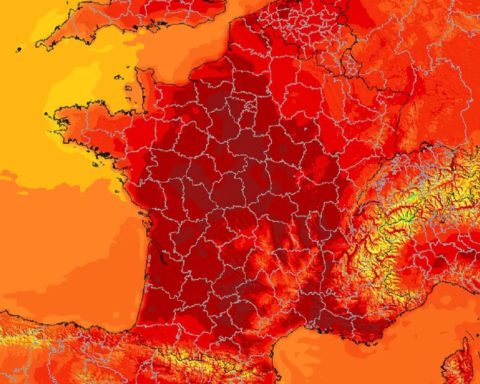A court of appeal in The Hague confirmed on 9 October last year the injunction for the Dutch state to reduce its greenhouse gas emissions by at least 25% by 2020 compared to 1990 levels. In the name of the right to life and the right to have a private and family life. Three years ago, a first judgment had already condemned the State in the name of a "duty of vigilance" and the protection of citizens. The government appealed. It lost it. In a growing number of countries, environmental groups are turning to the courts to try to save the planet from the ecological disasters that threaten it. Lawyer Maud Sarliève, for Justiceinfo.net, examines these initiatives, explains the significance of the Dutch judgment, and argues for a much more enterprising and creative International Criminal Court.
An 15 September 2016, the Prosecutor of the International Criminal Court (ICC) issued a policy paper stating her intention to prosecute serious crimes of environmental destruction. The paper stated that her office would "focus on crimes involving or resulting in, inter alia, environmental destruction, the illicit exploitation of natural resources, or the unlawful expropriation of land". According to the same document, States that so wished were offered the assistance of the Prosecutor's Office "in respect of conduct constituting serious crimes under national law, such as the illicit exploitation of natural resources, arms trafficking, trafficking in human beings, terrorism, financial crime, misappropriation of land or destruction of the environment".

Marjan Minnesma, the director of Urgenda, arrives at the court on 28 May 2018 for the appeal hearing in the Urgenda versus Dutch State case on greenhouse gas emissions. The decision against the Dutch State was confirmed on 9 October 2018. Photo ©Jerry Lampen /ANP/AFP
Two years have passed since that statement of intent. The issues related to environmental damage, global warming and their impact on the future of humanity have never been so acute. The effects of pressures on ecosystems, man-made ecological disasters and the resulting profound and irreversible imbalances are no longer disputable and their probable causes have been identified with greater precision. Constitutional, legislative and judicial initiatives and responses are multiplying and new legal horizons are opening up, which testify to an awakening of consciences.
A historic decision
Some of these initiatives move away from an anthropocene vision of law to focus on the protection of "common goods" and living things, following the example of States whose constitution or legislation now considers nature as a subject of law. Thus, in 2008, Ecuador included Nature, or Pachamama, in its Constitution. Bolivia introduced a "Mother Earth Law" in 2010. New Zealand recognized the legal personality of the Whanganui River, now considered a living entity; while in the United States, an association filed an appeal against the State of Colorado in September 2017 to recognize the legal personality of the river of the same name.
Others use litigation to propose an updated interpretation of the rights and obligations of States and force those in power to take climate issues into account in their policies. The ruling handed down on 9 October by a Dutch court is part of this movement. In 2015, the Urgenda organization, which campaigns for a rapid energy transition, had successfully reminded the judges that the Dutch government's duty of care, combined with its international commitments, required it to take the necessary measures to reduce the greenhouse gases produced by the Netherlands by at least 25 % by 2020, compared to 1990 levels.
The Dutch Government had appealed against the landmark decision in Urgenda's favour by the trial judges. The appeal decision was awaited with hope, anguish and impatience by many activists around the world. The decision of the Court of Appeal in The Hague represents a historic turning point for at least two reasons. On the one hand, it considers that state inaction infringes the internationally protected right to life and to private and family life of Dutch citizens. On the other hand, it validates the action taken by a non-governmental organization and 886 citizens, thus opening the door to further recourse by civil society, already in turmoil on these issues.
Private interests and the future of humanity
In Colombia, twenty-five children and teenagers, supported by the association Dejusticia, took their case to the Supreme Court at the beginning of 2018 to enjoin the state to protect the Colombian Amazonian forest from deforestation. The Supreme Court granted their request and, in April, ordered the Colombian government to urgently present a plan of action to this end, including the right to a healthy environment, reaffirmed by the Inter-American Court of Human Rights in an advisory opinion of 15 November 2017.
These national initiatives, aimed at making States face up to their responsibilities, are unfortunately not always enough to cope with the exorbitant powers of certain transnational companies. For example, Chevron recently obtained from the Permanent Court of Arbitration in The Hague the annulment of a judgment of the Ecuadorian court, which had condemned the American oil company to pay 9.5 billion dollars in compensation for environmental damage in the Amazon region. Ecuador is considering the possibility of an appeal against this decision, which was made public on 7 September 2018. Regardless of whether such an appeal is filed or its outcome, the message sent by this decision is clear: individual private interests take precedence over the collective general interest, the future of humanity and even that of the planet.
It is becoming clear, however, that the destruction of any environment perceived as "local" has serious global consequences. Massive deforestation in the Amazon, the Congo Basin or Indonesia - which according to some sources accounts for 25% of annual greenhouse gas emissions, almost as much as the activity of the United States - sadly illustrates this state of affairs. In addition to its impact on global warming, the disappearance of the forest deprives indigenous peoples and the biodiversity it shelters of a living environment. Without the damming of the forest, water and wind erosion will be a cause of great concern, often leading in the very short term to desertification and soil impoverishment. At the same time, greenhouse gases, responsible for ongoing global warming, are accelerating the melting of the Arctic ice cap and glaciers around the world, from the Himalayas to the Andes through the Alps. It is therefore vital to address international environmental protection as a global challenge for humanity on which the peace and security of all peoples depend.
ICC: From a wave of hope to a wave of hope
In this context, could international criminal law come to the rescue of the environment? This is the idea that the ICC Prosecutor seemed to want to communicate in her 2016 policy paper, raising a wave of hope within the environmental community. Among existing international mechanisms, the ICC is indeed one of the only international jurisdictions that non-state actors can refer via a complaint to the Office of the Prosecutor. Its mandate allows it to prosecute individuals for crimes of genocide, crimes against humanity, war crimes and the crime of aggression. However, its Statute does not contain a definition of environmental crime in peacetime. Article 8 does refer to environmental crimes, but only in the context of a conflict and subject to restrictive conditions. This lack of clear criminalization is certainly one of the factors explaining why the Prosecutor General's declaration of intent has not been followed up: in the two years since then, no investigations have been publicly conducted, no prosecutions have been initiated on facts relating in any way to the environment, and the wave of hope raised by the policy paper has now turned into a "vague hope".
However, the initial optimism was not unfounded. In July 2010, for example, Omar al-Bashir, President of Sudan, was prosecuted for poisoning springs and water pumps in towns and villages in Darfur. This environmental damage, described by the prosecutor as intentional infliction of conditions of life calculated to bring about physical destruction, was associated with one of the genocide charges in the arrest warrant against the Sudanese president.
At least one of the complaints (known as "communications") filed with the ICC prosecutor's office concerns facts relating to environmental destruction: in 2014, the consulting firm Global Diligence asked the prosecutor to investigate forced population transfers in Cambodia since July 2002. According to the complaint, these massive population displacements are part of a general and systematic policy of land grabbing implemented by the ruling elite for industrial exploitation. This policy has resulted, in many cases, in the destruction of the environment and of land previously occupied and exploited by civilian populations. According to Global Diligence, it could lead to the prosecution of crimes against humanity of forced transfer, illegal imprisonment, other inhumane acts and persecution.
For enterprising and creative lawyers
Given the greed of some commercial companies for mining, oil or other exploitation, it would be surprising if the example of the Cambodian complaint were isolated. It is common knowledge that mining in eastern Democratic Republic of Congo is fuelling conflicts in the region. Among the many dramatic consequences of the violence there is massive deforestation.
This destruction of the rainforest also continues unabated, and without much resistance, in Brazil, for example, in connection with the construction of the Belo Monte dam, or in Indonesia, for intensive agricultural exploitation. The short-, medium- and long-term consequences for the people living in the vicinity and for humanity as a whole have been recalled above.
However, it appears that the Cambodian complaint, filed four years ago, is still at the preliminary examination stage. Even so, the "classic" crimes against humanity it relates to clearly fall within the Court's material jurisdiction. What about environmental crimes, which are not defined as such in the Rome Statute? Which of the crimes defined by the Rome Statute could be used to combat this scourge? While the answers to these questions naturally depend on the situations concerned, the groups targeted and the acts and conduct complained of, they also depend on the creativity of the legal experts dealing with these issues and the prosecutor's determination as to the appropriateness of prosecutions.
As it stands, none of the conduct contributing significantly to global warming falls within the crimes defined by the Rome Statute. Since the impact of the conduct in question on the future of humanity is no longer questionable, some jurists are therefore advocating for an amendment to the Statute to add the crime of ecocide. Despite the complexity of the legal and political issues at stake, it is to be hoped that they will be able to convince the assembly of ICC member states of the merits of such an amendment.
In the meantime, if it is not too late, it is to the national courts, as in the Netherlands, that the law will have to be turned so that the environment can come to the rescue.
Maud Sarliève, Lawyer
Maud Sarliève is a lawyer and lecturer at the University of Paris-Ouest-Nanterre. She has worked, among others, for the Office of the Investigating Judges of the Extraordinary Chambers in the Courts of Cambodia, for the EULEX Prosecutors in Kosovo and for a defence team at the Special Tribunal for Lebanon.
The original of this article appeared in Justiceinfo.net

